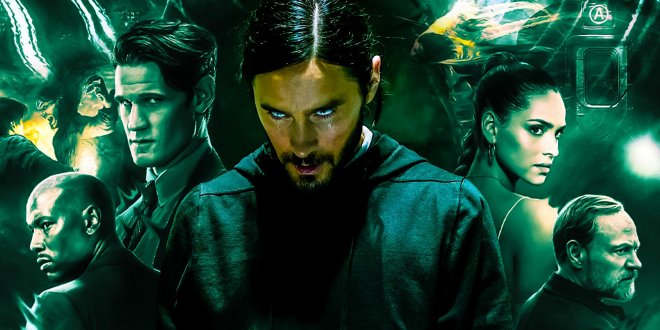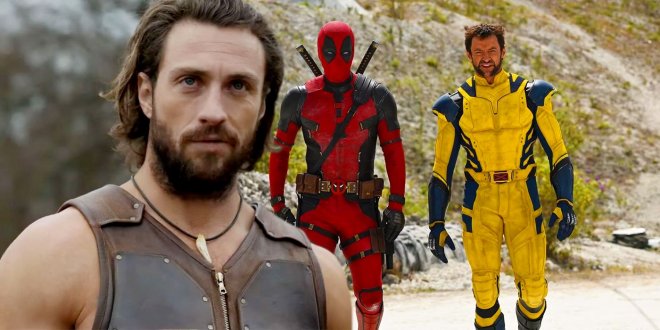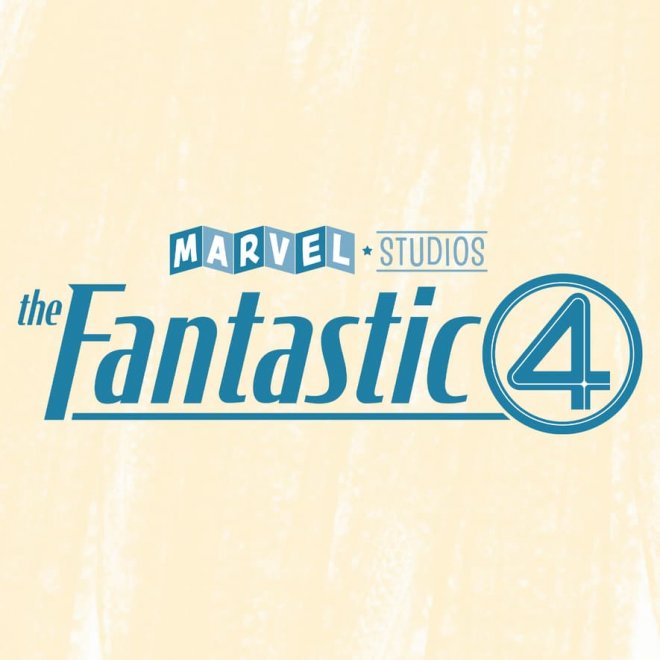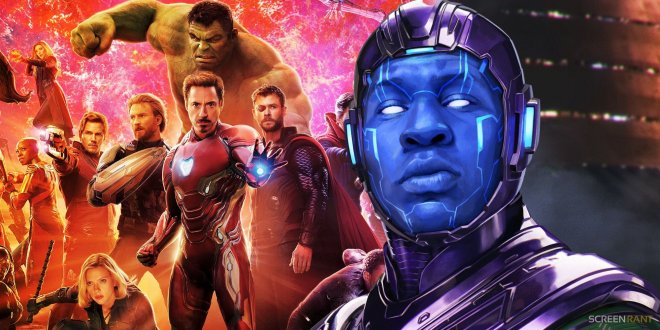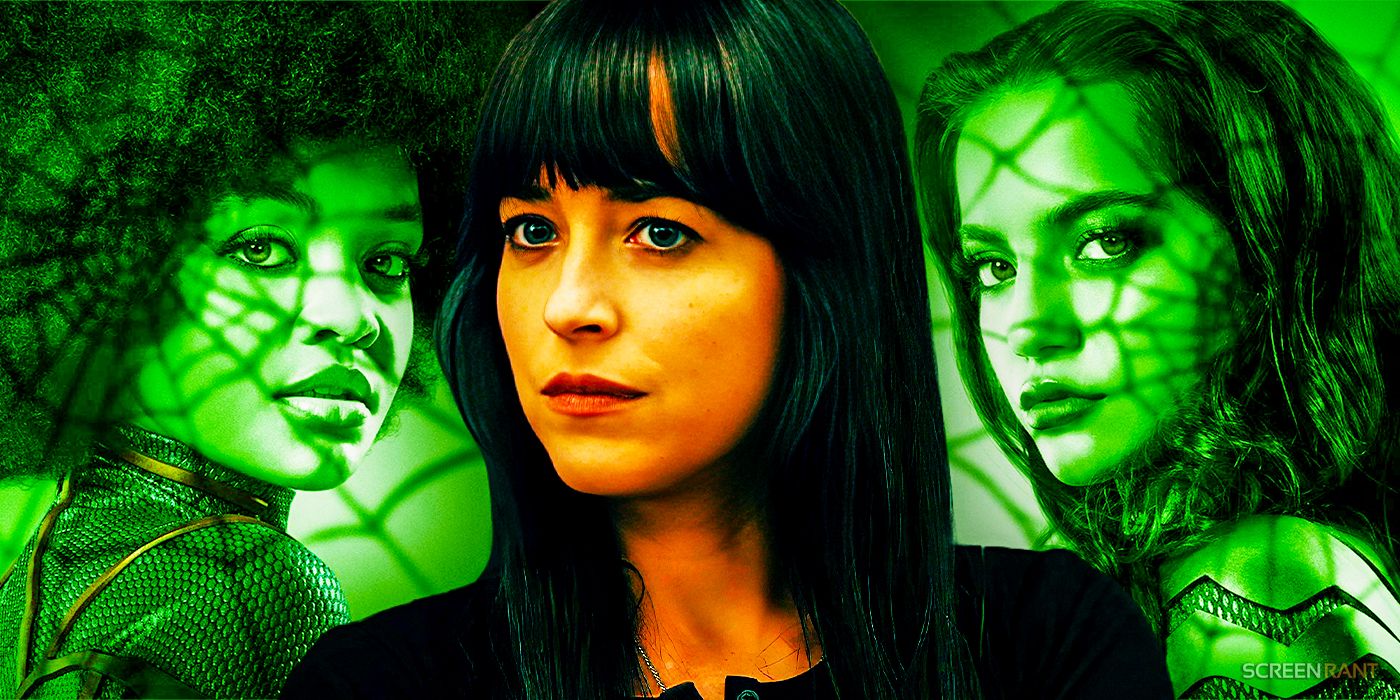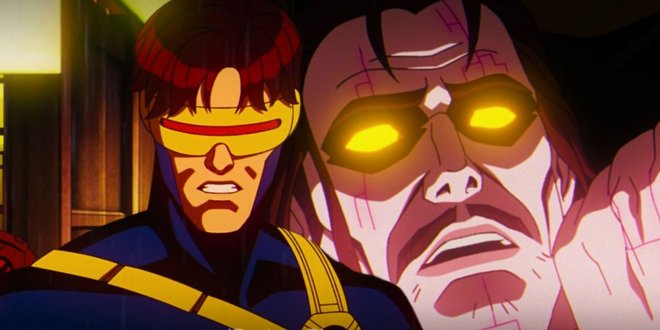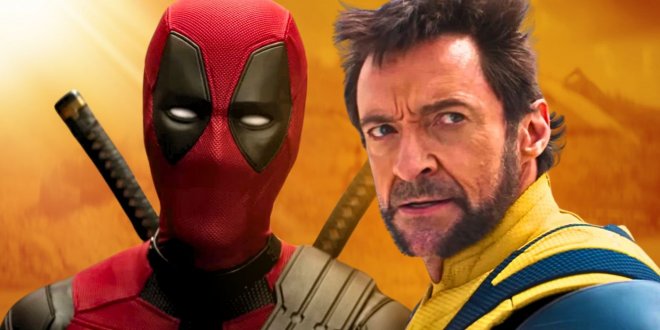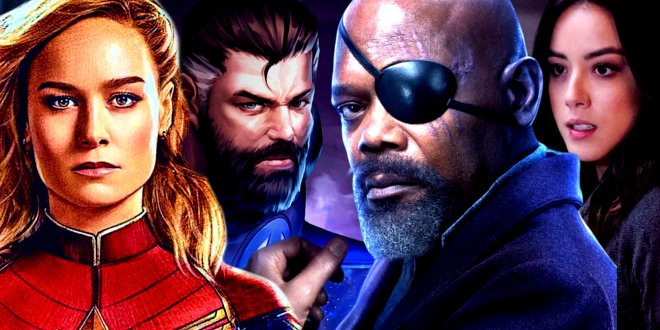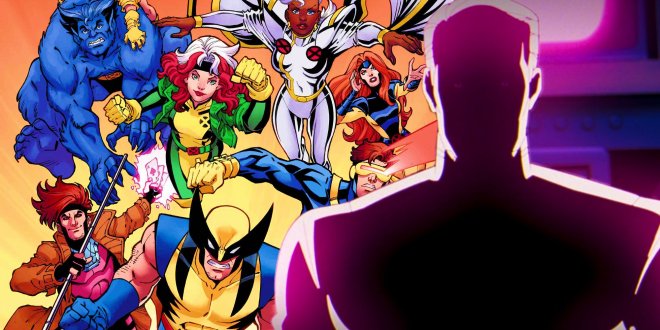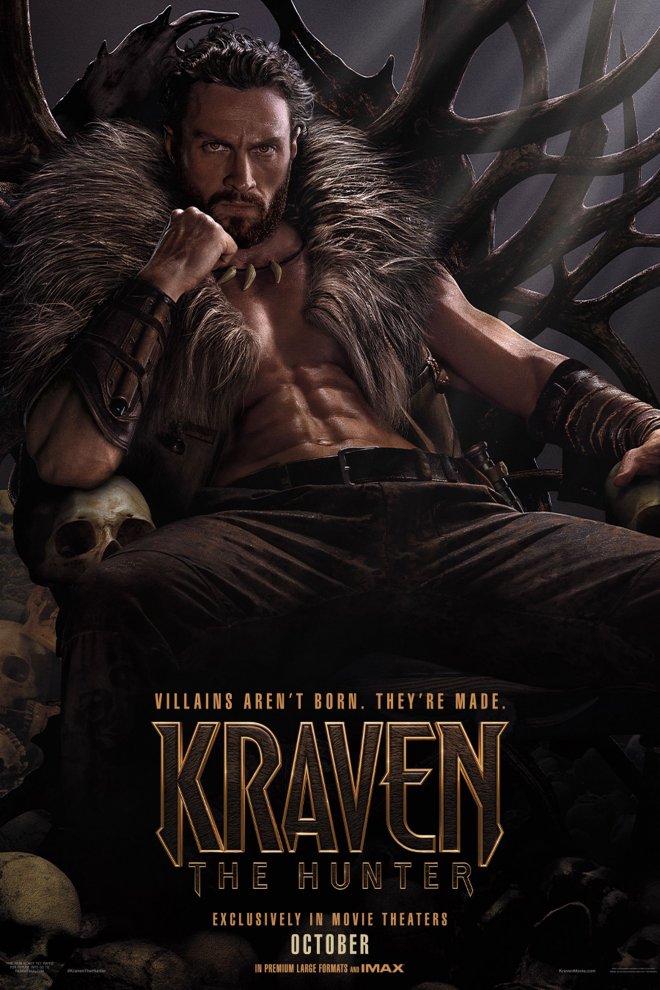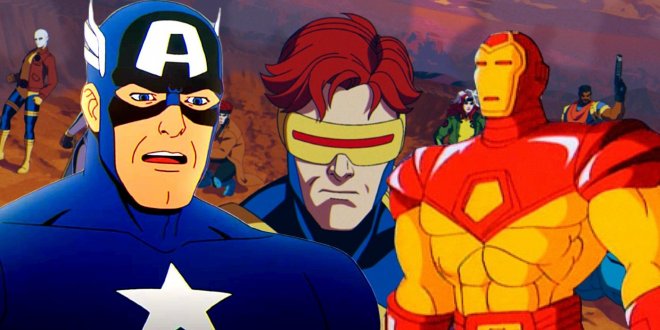10 Harsh Realities Of Rewatching Ang Lee"s Hulk
Summary
2003's Hulk was released during the initial superhero movie boom, following a string of successful Marvel movie adaptations before the Marvel Cinematic Universe. While it is not connected to the franchise, certain elements were retained for The Incredible Hulk, which is loosely considered a part of the MCU's timeline. The Hulk has remained a mainstay in the franchise, and despite not starring in another solo movie since, is expected to feature in the MCU's future.
![]() Related World War Hulk: Plot Details & Everything We Know Marvel Studios has been putting the chess pieces in place for a World War Hulk movie, which could be the biggest non-Avengers event movie in the MCU. 10 Ang Lee's Hulk Was Way Ahead Of Its Time Several Elements From Hulk Appeared In Later Comic Book Movies Close 2003's Hulk lives in infamy in superhero cinema, and is often considered one of the weakest comic book movies ever. However, rewatching the movie decades later reveals a movie that was way ahead of its time. The movie blended psychological drama and thriller elements into the narrative, crafting a darker and more character-driven movie compared with previous superhero films. Ang Lee explored much more complex themes than many standard superhero blockbusters of the time, which were unexpected and received poorly. However, later comic book movies would adopt a similar approach to make their narratives more mature.
Related World War Hulk: Plot Details & Everything We Know Marvel Studios has been putting the chess pieces in place for a World War Hulk movie, which could be the biggest non-Avengers event movie in the MCU. 10 Ang Lee's Hulk Was Way Ahead Of Its Time Several Elements From Hulk Appeared In Later Comic Book Movies Close 2003's Hulk lives in infamy in superhero cinema, and is often considered one of the weakest comic book movies ever. However, rewatching the movie decades later reveals a movie that was way ahead of its time. The movie blended psychological drama and thriller elements into the narrative, crafting a darker and more character-driven movie compared with previous superhero films. Ang Lee explored much more complex themes than many standard superhero blockbusters of the time, which were unexpected and received poorly. However, later comic book movies would adopt a similar approach to make their narratives more mature.
9 Ang Lee's Hulk Wasn't A Traditional Superhero Movie Hulk Does Not Tackle The Traditional Superhero Journey![]() Ang Lee's genre-bending tone was only one way in which Hulk deviated from traditional superhero narratives and character arcs. Bruce Banner was depicted as more of a victim than a hero, afflicted with Hulk transformations and hunted unfairly by the military. Hulk does not undergo the typical hero's journey often essential to comic book movies, especially the Marvel Cinematic Universe. Hulk's Bruce Banner did not decide to use his powers for good and assume a heroic persona. Instead, Lee proffered a compelling exploration of identity and trauma, with the protagonist being a passive victim of circumstance and other characters' motives.
Ang Lee's genre-bending tone was only one way in which Hulk deviated from traditional superhero narratives and character arcs. Bruce Banner was depicted as more of a victim than a hero, afflicted with Hulk transformations and hunted unfairly by the military. Hulk does not undergo the typical hero's journey often essential to comic book movies, especially the Marvel Cinematic Universe. Hulk's Bruce Banner did not decide to use his powers for good and assume a heroic persona. Instead, Lee proffered a compelling exploration of identity and trauma, with the protagonist being a passive victim of circumstance and other characters' motives.
8 Sam Elliot's General Ross Was The Best So Far Sam Elliot Was A Highlight In Hulk![]() Sam Elliot's portrayal of General Thaddeus "Thunderbolt" Ross is the standout depiction of the infamous character. With his authoritative voice and imposing presence, Elliot captured the essence of the stern and determined military officer from the comics. His nuanced performance added depth to Ross, making him a formidable and complex figure rather than a one-dimensional antagonist. Sam Elliot's Ross was a compelling exploration of paternal tenderness and militaristic coldness, crafting the most memorable and authentic iteration of the character in cinematic history. Though William Hurt's performance in The Incredible Hulk was effective, it lacked this complexity.
Sam Elliot's portrayal of General Thaddeus "Thunderbolt" Ross is the standout depiction of the infamous character. With his authoritative voice and imposing presence, Elliot captured the essence of the stern and determined military officer from the comics. His nuanced performance added depth to Ross, making him a formidable and complex figure rather than a one-dimensional antagonist. Sam Elliot's Ross was a compelling exploration of paternal tenderness and militaristic coldness, crafting the most memorable and authentic iteration of the character in cinematic history. Though William Hurt's performance in The Incredible Hulk was effective, it lacked this complexity.
![]() Related Marvel Secretly Hinted General Ross Is Already Red Hulk In The MCU Harrison Ford's casting as Thaddeus Ross hints that Red Hulk is on his way, but could Ross's transformation have already happened off-screen? 7 Hulk Looked More Like A Comic Than Any Other Superhero Movie Ang Lee's Editing Style Emulated Graphic Novels
Related Marvel Secretly Hinted General Ross Is Already Red Hulk In The MCU Harrison Ford's casting as Thaddeus Ross hints that Red Hulk is on his way, but could Ross's transformation have already happened off-screen? 7 Hulk Looked More Like A Comic Than Any Other Superhero Movie Ang Lee's Editing Style Emulated Graphic Novels ![]() Ang Lee's Hulk stood out for its innovative visual approach, resembling a living comic book on screen more than any other superhero movie. Lee incorporated split screens and panel-like transitions, emulating the comic book format. The film's use of vibrant colors, stylized visuals, and dynamic compositions echoed comic book aesthetics effectively. While the movie faced criticism, its visual experimentation remains noteworthy for embracing the source's graphic nature, paving the way for subsequent movies to adapt comparable elements. Lee's editing style created a cinematic experience that, in its own way, felt like flipping through the pages of a comic book.
Ang Lee's Hulk stood out for its innovative visual approach, resembling a living comic book on screen more than any other superhero movie. Lee incorporated split screens and panel-like transitions, emulating the comic book format. The film's use of vibrant colors, stylized visuals, and dynamic compositions echoed comic book aesthetics effectively. While the movie faced criticism, its visual experimentation remains noteworthy for embracing the source's graphic nature, paving the way for subsequent movies to adapt comparable elements. Lee's editing style created a cinematic experience that, in its own way, felt like flipping through the pages of a comic book.
6 Hulk Wasted Nick Nolte's Villain Nick Nolte's David Banner Became The Absorbing Man Close Acting legend Nick Nolte had enormous potential as a villain in Hulk, but was wasted by confused characterization. Nolte played Bruce Banner's abusive father, David Banner (known in Marvel Comics as Brian). In Hulk, David Banner experimented on his son, and in his attempts to replicate Bruce's Hulk transformation, turned himself into the Absorbing Man. These are two separate characters in the comics, and merging them together in Hulk was disjointed and wasted both of the villains. Nolte would have been great portraying either foe, but combining them weakened them, particularly considering how little screen time Hulk's villain was given.
5 The MCU's The Incredible Hulk Needed Ang Lee's Hulk The Incredible Hulk Was A Soft Reboot Of Hulk Close The MCU's The Incredible Hulk was initially conceived as a sequel before becoming a soft reboot of Ang Lee's movie. Rather than depict Bruce Banner's origin story and transformation into the Hulk again, The Incredible Hulk instead featured a detailed flashback sequence during the opening credits. These scenes were largely recreations of Hulk scenes, selecting which aspects the reboot would keep and retconning other minor elements. The Incredible Hulk wouldn't have been able to jump straight into the action without Ang Lee's Hulk to establish the core characters, their backstories, and the ongoing narrative.
4 The MCU Squandered Hulk's Psychological Elements Hulk Featured Themes Of Psychology And Identity![]() Ang Lee's Hulk very deftly set up explorations of Bruce Banner's psyche and instigated a narrative wherein the Hulk was a separate, distinct personality. The Hulk in Marvel Comics has a complicated psychology, with multiple Hulk identities jostling for control of Bruce subconscious. This characterization was much stronger in Hulk. The psychedelic dream sequences, particularly the mirror scene, tentatively began exploring Banner's nuanced psychological profile, and presented Hulk as a metaphor for repressed emotions. The Incredible Hulk failed to maintain this. The MCU only really explored Banner's psyche in Avengers: Infinity War, which felt all too brief considering the potential.
Ang Lee's Hulk very deftly set up explorations of Bruce Banner's psyche and instigated a narrative wherein the Hulk was a separate, distinct personality. The Hulk in Marvel Comics has a complicated psychology, with multiple Hulk identities jostling for control of Bruce subconscious. This characterization was much stronger in Hulk. The psychedelic dream sequences, particularly the mirror scene, tentatively began exploring Banner's nuanced psychological profile, and presented Hulk as a metaphor for repressed emotions. The Incredible Hulk failed to maintain this. The MCU only really explored Banner's psyche in Avengers: Infinity War, which felt all too brief considering the potential.
3 Ang Lee's Hulk Feels Like Two Separate Movies Hulk's Narrative Features Two Distinct Episodes![]() Ang Lee's Hulk is essentially two movies played back-to-back. The first half depicts a slowly unfolding story about Bruce Banner, his relationships, his tragic backstory, and his initial transformation into the Hulk. The latter part of the film, however, features the Hulk almost exclusively, as he evades capture by General Ross. Eric Bana's Bruce Banner is largely absent, undermining the inextricable connection between Hulk and Bruce Banner. The character's duality isn't explored, feeling instead as if they are two separate characters rather than one. As a result, the movie feels like one narrative split into two.
Ang Lee's Hulk is essentially two movies played back-to-back. The first half depicts a slowly unfolding story about Bruce Banner, his relationships, his tragic backstory, and his initial transformation into the Hulk. The latter part of the film, however, features the Hulk almost exclusively, as he evades capture by General Ross. Eric Bana's Bruce Banner is largely absent, undermining the inextricable connection between Hulk and Bruce Banner. The character's duality isn't explored, feeling instead as if they are two separate characters rather than one. As a result, the movie feels like one narrative split into two.
2 Hulk's Backstory Was More Compelling Than In The MCU Hulk Dedicated A Large Amount Of Its Plot To Hulk's Backstory![]() While Ang Lee's Hulk was criticized for the long wait before the titular character shows up, the length backstory is very effective upon reflection. Hulk delved into Bruce's traumatic childhood backstory, exploring his strained relationship with his father and the origins of his emotional struggles. Though the first half of Hulk was quite slow, these character traits are essential in understanding Bruce Banner's complex personality. This depth of character development in Hulk provided a psychological foundation for the Hulk's existence, contrasting with the more streamlined characterization in the MCU, which largely omitted it.
While Ang Lee's Hulk was criticized for the long wait before the titular character shows up, the length backstory is very effective upon reflection. Hulk delved into Bruce's traumatic childhood backstory, exploring his strained relationship with his father and the origins of his emotional struggles. Though the first half of Hulk was quite slow, these character traits are essential in understanding Bruce Banner's complex personality. This depth of character development in Hulk provided a psychological foundation for the Hulk's existence, contrasting with the more streamlined characterization in the MCU, which largely omitted it.
1 Ang Lee's Hulk Wasn't Actually That Bad Hulk Doesn't Desrve The Hate It Receives![]() Ang Lee's Hulk has a pretty unfair reputation as a poor superhero movie. Reconsidering it years later, there is a lot that holds up to modern scrutiny. It boasts several compelling performances and an intricate plot. The relationship between Betty Ross and her father, General Ross, is particularly dynamic and compelling, lending the plot significant emotional stakes. Danny Elfman's stellar soundtrack drives the movie forward, while recalling the excitement and novelty of the early 2000s superhero movies. Though it certainly has its issues, the harshest reality gleamed through rewatching Hulk, is that it doesn't deserve the amount of hate it draws.
Ang Lee's Hulk has a pretty unfair reputation as a poor superhero movie. Reconsidering it years later, there is a lot that holds up to modern scrutiny. It boasts several compelling performances and an intricate plot. The relationship between Betty Ross and her father, General Ross, is particularly dynamic and compelling, lending the plot significant emotional stakes. Danny Elfman's stellar soundtrack drives the movie forward, while recalling the excitement and novelty of the early 2000s superhero movies. Though it certainly has its issues, the harshest reality gleamed through rewatching Hulk, is that it doesn't deserve the amount of hate it draws.
![]() Hulk
Hulk
Release Date June 19, 2003 Director Ang Lee Cast Eric Bana , Jennifer Connelly , Sam Elliott , Josh Lucas , Nick Nolte , Paul Kersey Runtime 138 Minutes
[圖擷取自網路,如有疑問請私訊]
- Ang Lee's Hulk was way ahead of its time, blending psychological drama and thriller elements into the narrative for a darker and more character-driven movie compared to other superhero films.
- Hulk deviated from traditional superhero narratives, depicting Bruce Banner as a victim rather than a hero, and exploring themes of identity and trauma rather than a typical hero's journey.
- Sam Elliot's portrayal of General Ross was a highlight, with his nuanced performance adding depth to the character and making him a formidable and complex figure.
2003's Hulk was released during the initial superhero movie boom, following a string of successful Marvel movie adaptations before the Marvel Cinematic Universe. While it is not connected to the franchise, certain elements were retained for The Incredible Hulk, which is loosely considered a part of the MCU's timeline. The Hulk has remained a mainstay in the franchise, and despite not starring in another solo movie since, is expected to feature in the MCU's future.
 Related World War Hulk: Plot Details & Everything We Know Marvel Studios has been putting the chess pieces in place for a World War Hulk movie, which could be the biggest non-Avengers event movie in the MCU. 10 Ang Lee's Hulk Was Way Ahead Of Its Time Several Elements From Hulk Appeared In Later Comic Book Movies Close 2003's Hulk lives in infamy in superhero cinema, and is often considered one of the weakest comic book movies ever. However, rewatching the movie decades later reveals a movie that was way ahead of its time. The movie blended psychological drama and thriller elements into the narrative, crafting a darker and more character-driven movie compared with previous superhero films. Ang Lee explored much more complex themes than many standard superhero blockbusters of the time, which were unexpected and received poorly. However, later comic book movies would adopt a similar approach to make their narratives more mature.
Related World War Hulk: Plot Details & Everything We Know Marvel Studios has been putting the chess pieces in place for a World War Hulk movie, which could be the biggest non-Avengers event movie in the MCU. 10 Ang Lee's Hulk Was Way Ahead Of Its Time Several Elements From Hulk Appeared In Later Comic Book Movies Close 2003's Hulk lives in infamy in superhero cinema, and is often considered one of the weakest comic book movies ever. However, rewatching the movie decades later reveals a movie that was way ahead of its time. The movie blended psychological drama and thriller elements into the narrative, crafting a darker and more character-driven movie compared with previous superhero films. Ang Lee explored much more complex themes than many standard superhero blockbusters of the time, which were unexpected and received poorly. However, later comic book movies would adopt a similar approach to make their narratives more mature.9 Ang Lee's Hulk Wasn't A Traditional Superhero Movie Hulk Does Not Tackle The Traditional Superhero Journey
 Ang Lee's genre-bending tone was only one way in which Hulk deviated from traditional superhero narratives and character arcs. Bruce Banner was depicted as more of a victim than a hero, afflicted with Hulk transformations and hunted unfairly by the military. Hulk does not undergo the typical hero's journey often essential to comic book movies, especially the Marvel Cinematic Universe. Hulk's Bruce Banner did not decide to use his powers for good and assume a heroic persona. Instead, Lee proffered a compelling exploration of identity and trauma, with the protagonist being a passive victim of circumstance and other characters' motives.
Ang Lee's genre-bending tone was only one way in which Hulk deviated from traditional superhero narratives and character arcs. Bruce Banner was depicted as more of a victim than a hero, afflicted with Hulk transformations and hunted unfairly by the military. Hulk does not undergo the typical hero's journey often essential to comic book movies, especially the Marvel Cinematic Universe. Hulk's Bruce Banner did not decide to use his powers for good and assume a heroic persona. Instead, Lee proffered a compelling exploration of identity and trauma, with the protagonist being a passive victim of circumstance and other characters' motives.8 Sam Elliot's General Ross Was The Best So Far Sam Elliot Was A Highlight In Hulk
 Sam Elliot's portrayal of General Thaddeus "Thunderbolt" Ross is the standout depiction of the infamous character. With his authoritative voice and imposing presence, Elliot captured the essence of the stern and determined military officer from the comics. His nuanced performance added depth to Ross, making him a formidable and complex figure rather than a one-dimensional antagonist. Sam Elliot's Ross was a compelling exploration of paternal tenderness and militaristic coldness, crafting the most memorable and authentic iteration of the character in cinematic history. Though William Hurt's performance in The Incredible Hulk was effective, it lacked this complexity.
Sam Elliot's portrayal of General Thaddeus "Thunderbolt" Ross is the standout depiction of the infamous character. With his authoritative voice and imposing presence, Elliot captured the essence of the stern and determined military officer from the comics. His nuanced performance added depth to Ross, making him a formidable and complex figure rather than a one-dimensional antagonist. Sam Elliot's Ross was a compelling exploration of paternal tenderness and militaristic coldness, crafting the most memorable and authentic iteration of the character in cinematic history. Though William Hurt's performance in The Incredible Hulk was effective, it lacked this complexity. Related Marvel Secretly Hinted General Ross Is Already Red Hulk In The MCU Harrison Ford's casting as Thaddeus Ross hints that Red Hulk is on his way, but could Ross's transformation have already happened off-screen? 7 Hulk Looked More Like A Comic Than Any Other Superhero Movie Ang Lee's Editing Style Emulated Graphic Novels
Related Marvel Secretly Hinted General Ross Is Already Red Hulk In The MCU Harrison Ford's casting as Thaddeus Ross hints that Red Hulk is on his way, but could Ross's transformation have already happened off-screen? 7 Hulk Looked More Like A Comic Than Any Other Superhero Movie Ang Lee's Editing Style Emulated Graphic Novels  Ang Lee's Hulk stood out for its innovative visual approach, resembling a living comic book on screen more than any other superhero movie. Lee incorporated split screens and panel-like transitions, emulating the comic book format. The film's use of vibrant colors, stylized visuals, and dynamic compositions echoed comic book aesthetics effectively. While the movie faced criticism, its visual experimentation remains noteworthy for embracing the source's graphic nature, paving the way for subsequent movies to adapt comparable elements. Lee's editing style created a cinematic experience that, in its own way, felt like flipping through the pages of a comic book.
Ang Lee's Hulk stood out for its innovative visual approach, resembling a living comic book on screen more than any other superhero movie. Lee incorporated split screens and panel-like transitions, emulating the comic book format. The film's use of vibrant colors, stylized visuals, and dynamic compositions echoed comic book aesthetics effectively. While the movie faced criticism, its visual experimentation remains noteworthy for embracing the source's graphic nature, paving the way for subsequent movies to adapt comparable elements. Lee's editing style created a cinematic experience that, in its own way, felt like flipping through the pages of a comic book.6 Hulk Wasted Nick Nolte's Villain Nick Nolte's David Banner Became The Absorbing Man Close Acting legend Nick Nolte had enormous potential as a villain in Hulk, but was wasted by confused characterization. Nolte played Bruce Banner's abusive father, David Banner (known in Marvel Comics as Brian). In Hulk, David Banner experimented on his son, and in his attempts to replicate Bruce's Hulk transformation, turned himself into the Absorbing Man. These are two separate characters in the comics, and merging them together in Hulk was disjointed and wasted both of the villains. Nolte would have been great portraying either foe, but combining them weakened them, particularly considering how little screen time Hulk's villain was given.
5 The MCU's The Incredible Hulk Needed Ang Lee's Hulk The Incredible Hulk Was A Soft Reboot Of Hulk Close The MCU's The Incredible Hulk was initially conceived as a sequel before becoming a soft reboot of Ang Lee's movie. Rather than depict Bruce Banner's origin story and transformation into the Hulk again, The Incredible Hulk instead featured a detailed flashback sequence during the opening credits. These scenes were largely recreations of Hulk scenes, selecting which aspects the reboot would keep and retconning other minor elements. The Incredible Hulk wouldn't have been able to jump straight into the action without Ang Lee's Hulk to establish the core characters, their backstories, and the ongoing narrative.
4 The MCU Squandered Hulk's Psychological Elements Hulk Featured Themes Of Psychology And Identity
 Ang Lee's Hulk very deftly set up explorations of Bruce Banner's psyche and instigated a narrative wherein the Hulk was a separate, distinct personality. The Hulk in Marvel Comics has a complicated psychology, with multiple Hulk identities jostling for control of Bruce subconscious. This characterization was much stronger in Hulk. The psychedelic dream sequences, particularly the mirror scene, tentatively began exploring Banner's nuanced psychological profile, and presented Hulk as a metaphor for repressed emotions. The Incredible Hulk failed to maintain this. The MCU only really explored Banner's psyche in Avengers: Infinity War, which felt all too brief considering the potential.
Ang Lee's Hulk very deftly set up explorations of Bruce Banner's psyche and instigated a narrative wherein the Hulk was a separate, distinct personality. The Hulk in Marvel Comics has a complicated psychology, with multiple Hulk identities jostling for control of Bruce subconscious. This characterization was much stronger in Hulk. The psychedelic dream sequences, particularly the mirror scene, tentatively began exploring Banner's nuanced psychological profile, and presented Hulk as a metaphor for repressed emotions. The Incredible Hulk failed to maintain this. The MCU only really explored Banner's psyche in Avengers: Infinity War, which felt all too brief considering the potential.3 Ang Lee's Hulk Feels Like Two Separate Movies Hulk's Narrative Features Two Distinct Episodes
 Ang Lee's Hulk is essentially two movies played back-to-back. The first half depicts a slowly unfolding story about Bruce Banner, his relationships, his tragic backstory, and his initial transformation into the Hulk. The latter part of the film, however, features the Hulk almost exclusively, as he evades capture by General Ross. Eric Bana's Bruce Banner is largely absent, undermining the inextricable connection between Hulk and Bruce Banner. The character's duality isn't explored, feeling instead as if they are two separate characters rather than one. As a result, the movie feels like one narrative split into two.
Ang Lee's Hulk is essentially two movies played back-to-back. The first half depicts a slowly unfolding story about Bruce Banner, his relationships, his tragic backstory, and his initial transformation into the Hulk. The latter part of the film, however, features the Hulk almost exclusively, as he evades capture by General Ross. Eric Bana's Bruce Banner is largely absent, undermining the inextricable connection between Hulk and Bruce Banner. The character's duality isn't explored, feeling instead as if they are two separate characters rather than one. As a result, the movie feels like one narrative split into two.2 Hulk's Backstory Was More Compelling Than In The MCU Hulk Dedicated A Large Amount Of Its Plot To Hulk's Backstory
 While Ang Lee's Hulk was criticized for the long wait before the titular character shows up, the length backstory is very effective upon reflection. Hulk delved into Bruce's traumatic childhood backstory, exploring his strained relationship with his father and the origins of his emotional struggles. Though the first half of Hulk was quite slow, these character traits are essential in understanding Bruce Banner's complex personality. This depth of character development in Hulk provided a psychological foundation for the Hulk's existence, contrasting with the more streamlined characterization in the MCU, which largely omitted it.
While Ang Lee's Hulk was criticized for the long wait before the titular character shows up, the length backstory is very effective upon reflection. Hulk delved into Bruce's traumatic childhood backstory, exploring his strained relationship with his father and the origins of his emotional struggles. Though the first half of Hulk was quite slow, these character traits are essential in understanding Bruce Banner's complex personality. This depth of character development in Hulk provided a psychological foundation for the Hulk's existence, contrasting with the more streamlined characterization in the MCU, which largely omitted it.1 Ang Lee's Hulk Wasn't Actually That Bad Hulk Doesn't Desrve The Hate It Receives
 Ang Lee's Hulk has a pretty unfair reputation as a poor superhero movie. Reconsidering it years later, there is a lot that holds up to modern scrutiny. It boasts several compelling performances and an intricate plot. The relationship between Betty Ross and her father, General Ross, is particularly dynamic and compelling, lending the plot significant emotional stakes. Danny Elfman's stellar soundtrack drives the movie forward, while recalling the excitement and novelty of the early 2000s superhero movies. Though it certainly has its issues, the harshest reality gleamed through rewatching Hulk, is that it doesn't deserve the amount of hate it draws.
Ang Lee's Hulk has a pretty unfair reputation as a poor superhero movie. Reconsidering it years later, there is a lot that holds up to modern scrutiny. It boasts several compelling performances and an intricate plot. The relationship between Betty Ross and her father, General Ross, is particularly dynamic and compelling, lending the plot significant emotional stakes. Danny Elfman's stellar soundtrack drives the movie forward, while recalling the excitement and novelty of the early 2000s superhero movies. Though it certainly has its issues, the harshest reality gleamed through rewatching Hulk, is that it doesn't deserve the amount of hate it draws.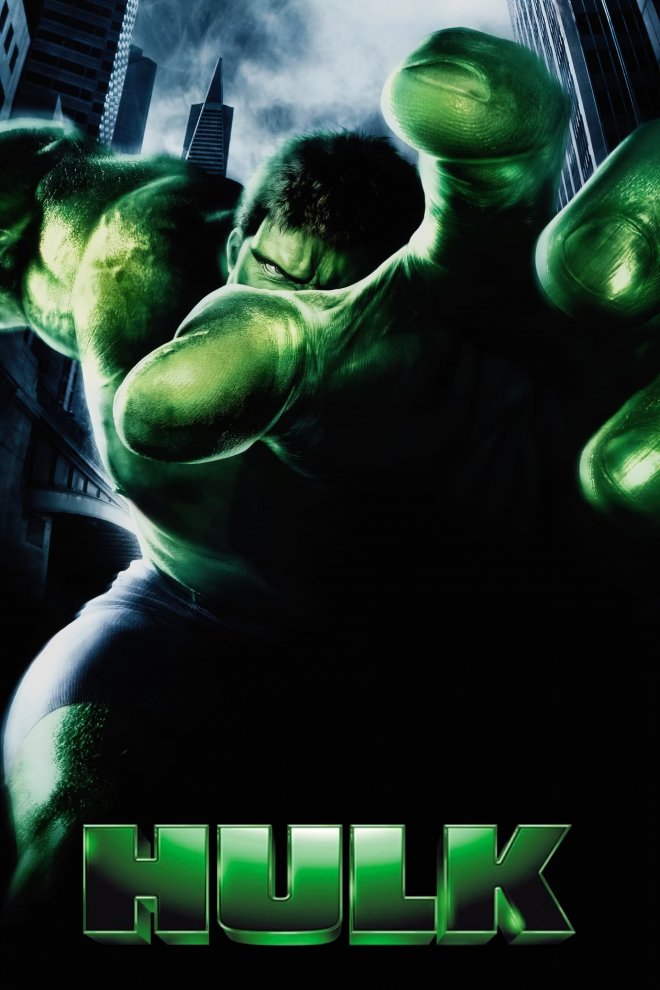 Hulk
Hulk Release Date June 19, 2003 Director Ang Lee Cast Eric Bana , Jennifer Connelly , Sam Elliott , Josh Lucas , Nick Nolte , Paul Kersey Runtime 138 Minutes
[圖擷取自網路,如有疑問請私訊]
|
本篇 |
不想錯過? 請追蹤FB專頁! |
| 喜歡這篇嗎?快分享吧! |
相關文章
tag_marvel








